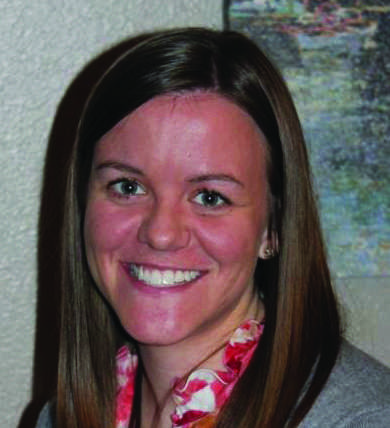America needs financial literacy, responsibility

January 24, 2012
It’s one of the main things people seem to be talking about these days: debt.
Federal debt. Credit card debt. Student debt.
As Americans try to decide who should serve as president come January 2013, they are focused on how candidates say they will cut our country’s $15.3 trillion debt. All the while, we’re watching closely as European countries struggle under huge financial burdens of their own.
On a more personal level, U.S. students graduate from college with an average of about $27,209 in student loan debt, according to a story published by National Public Radio last May. And credit card debt among undergraduates averaged about $3,000 in 2009, according to a study conducted by Sallie May.
So why has there not been a push to make Americans more financially literate?
We talk all the time about the need to bring American students up to par with the rest of the world in math, science and engineering.
Yet we’re in the middle of a recession that started, in large part, because Americans overextended themselves purchasing homes they couldn’t afford.
Sure, we can blame banks for encouraging and agreeing to mortgage loans they knew many customers could not pay off. But maybe if we ourselves were a little more fiscally savvy, we would know better than to take out such loans in the first place.
I graduated from college about 19 months ago, and I’ve been asked countless times since then, what do you wish you’d learned in college that you didn’t?
Most of the time the question comes from someone in the journalism industry, but my top answer is relevant to any college student.
If there’s one course I wish I’d taken, it’s one on financial literacy. It seems so practical, and yet many days, I feel so uninformed.
Hands down one of the greatest adjustments I faced moving away from Simpson and starting my career was establishing a budget.
That $27,209 debt seems like an abstract number when you’re in school and more focused on paying your tab at the Zoo than what you’re going to owe for your college education over the next 20 years. Besides, you have two whole decades to pay it off.
That number becomes a lot more real when Iowa Student Loan starts withdrawing hundreds of dollars from your checking account every 30 days. Add that to your monthly rent, car payment and credit card bill, and often times there’s not a lot left over.
That’s why, in addition to preparing students to excel in their careers, schools should provide the tools they need to excel overall.
I’ve discussed many of these financial quandaries with friends and colleagues, and many agree they all would make great material for a class in fiscal responsibility.
If you’re buying a new car, is it better to finance the dealership’s financial agency or should you look to a bank for a loan? It probably depends on the situation, but I’d be hard pressed to tell you what scenario is the most ideal.
If I do have extra money that I know I can put into savings for a long period of time, what’s the best way to invest it?
If I want to buy a house five years from now, what do I need to be doing today to prepare?
I’ve been told countless times that one of the most beneficial things you can do for your future is to start a retirement fund, and I’m even fortunate enough to work for a company that offers pretty good 401K options, or so I’ve been told.
But have you tried to fill out one of those forms? It’s a little intimidating to say the least.
I might have a better idea if I’d taken a course that told me what any of those acronyms mean.
Simpson and other colleges and universities should consider offering more courses on financial literacy and strongly encouraging students to take them.
High schools should do so, too. It makes sense to give students the tools, resources and knowledge to make educated decisions when it comes to managing their finances.
As Iowa embarks on its latest quest for education reform, there’s been a lot of talk on how to best train and evaluate teachers, what makes the optimum class size and how to test our students. Financial literacy and fiscal responsibility should be part of that discussion, too.
Emily Schettler graduated from Simpson in 2010 with a degree in multimedia journalism, and she currently writes for the Iowa City Press-Citizen. During her time at Simpson, she was the editor-in-chief of the Simpsonian and interned in Washington D.C.





